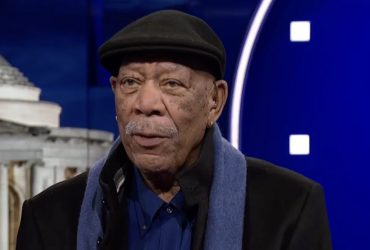Photo courtesy of Kurdistan 24
The jihadist militant group, Hay’at Tahrir al-Sham (HTS), supported by Turkish airstrikes, has taken control of the Syrian capital, Damascus, and toppled the regime of Bashar al-Assad.
Meanwhile, “Another coalition of radical Islamists under the Syrian National Army and Free Syrian Army includes multiple factions supported by Turkey that are also aligned with ISIS.
Their goal is not only to get rid of the Assad regime, but also to eliminate the Kurds, Christians, and any other minorities,” reports Free Burma Rangers (FBR), a faith-based aid organization with teams on the ground in Syria, Burma, Ukraine, and other conflict zones.
Iran and Russia have long supported Assad, aiming to maintain their “Axis of Resistance” against U.S. influence. However, with Assad’s exit, Iran will lose much of its leverage in Syria.
Russia, a strong ally of Assad, has viewed him as a counter to Islamist extremism. With Assad’s departure, Russia may also lose influence in Syria but will likely try to maintain its military presence at its naval base in Tartus.
Turkey is backing Islamist forces fighting against the Assad regime, which puts it at odds with both Iran and Russia.
Although Turkey is a UN member and an alleged U.S. ally, its interests in Syria conflict with those of the U.S. Turkey seeks to eliminate the Kurds, a group that U.S. troops have fought alongside in the war against ISIS.
The U.S. has primarily focused on combating ISIS in Syria, with approximately 1,000 Special Operations troops still deployed. U.S. airstrikes continue to target ISIS remnants, and the U.S. remains committed to preventing the group’s resurgence. However, Turkey is now supporting the ISIS side.
Turkey is bombing or supporting the bombing of Kurdish positions, including those of internally displaced people and civilians. This is driven by Turkey’s concern over Kurdish separatism.
Ankara targets Kurdish groups in Syria, viewing many of these militias as extensions of the Kurdistan Workers’ Party (PKK), a Kurdish separatist group that has been waging an insurgency within Turkey for decades.
The PKK is designated a terrorist organization by Turkey, the U.S., and the European Union due to its violent methods aimed at creating an independent Kurdish state.
In Syria, the Syrian Democratic Forces (SDF) and the People’s Defense Units (YPG), two major Kurdish militias, are either affiliated with the PKK or share ideological ties to it.
While the SDF has been a key partner for the U.S. in the fight against ISIS, Turkey views their presence near its southern border as a direct security threat. Ankara fears that any Kurdish autonomous region in Syria could fuel separatism within Turkey’s own Kurdish population.
The U.S. faces a dilemma with Turkey, a NATO member and critical partner in the region for military operations, particularly in the fight against ISIS and other militant groups.
Turkey has provided crucial bases, such as Incirlik Air Base, for U.S. operations in the Middle East.
This makes it essential for the U.S. to balance its relationship with Turkey to avoid diplomatic tensions within the alliance.
On the other hand, the U.S. has supported Kurdish militias, especially the Syrian Democratic Forces (SDF), due to their effective role in fighting ISIS.
The SDF, with a large Kurdish contingent, played a vital part in the defeat of ISIS in Syria, notably in capturing key territories like Raqqa, the former ISIS capital.
U.S. support for the Kurds has included weapons, training, and air support, fostering strong tactical cooperation on the ground. As the U.S. continues its fight against ISIS, its alliance with the SDF and the Kurds remains crucial.
Meanwhile, the situation in Syria is shifting. It’s unclear what kind of governance Hay’at Tahrir al-Sham (HTS) and its allies will impose now that they are on the brink of seizing control of the country.
The war against ISIS could intensify if the Syrian National Army and Free Syrian Army hold or expand the territory they’ve captured. An example of what might follow is Turkey-backed Syrian National Army forces taking control of the city of Manbij.
Reports from the ground indicate that Turkish-backed troops in Manbij have shown no restraint, killing Kurds and Christians, including civilians and displaced people.
From a humanitarian standpoint, irrespective of the geopolitical context, what Turkey is doing could be considered a war crime, effectively enabling a terrorist organization.
The post Turkey Bombs U.S.-Allied Kurds in Syria While Backing Radical Islamist Groups appeared first on The Gateway Pundit.











